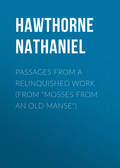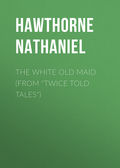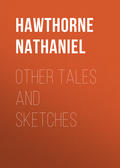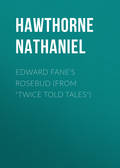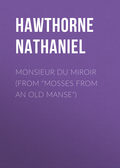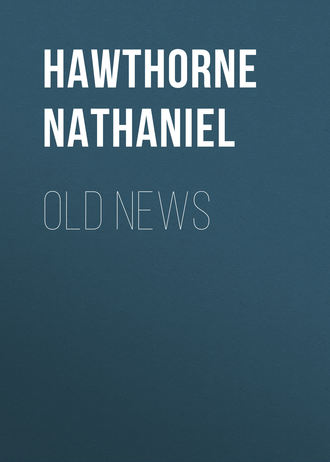
Натаниель Готорн
Old News
But the slaves, we suspect, were the merriest part of the population, since it was their gift to be merry in the worst of circumstances; and they endured, comparatively, few hardships, under the domestic sway of our fathers. There seems to have been a great trade in these human commodities. No advertisements are more frequent than those of "a negro fellow, fit for almost any household work"; "a negro woman, honest, healthy, and capable"; "a negro wench of many desirable qualities"; "a negro man, very fit for a taylor." We know not in what this natural fitness for a tailor consisted, unless it were some peculiarity of conformation that enabled him to sit cross-legged. When the slaves of a family were inconveniently prolific, – it being not quite orthodox to drown the superfluous offspring, like a litter of kittens, – notice was promulgated of "a negro child to be given away." Sometimes the slaves assumed the property of their own persons, and made their escape; among many such instances, the governor raises a hue-and-cry after his negro Juba. But, without venturing a word in extenuation of the general system, we confess our opinion that Caesar, Pompey, Scipio, and all such great Roman namesakes, would have been better advised had they stayed at home, foddering the cattle, cleaning dishes, – in fine, performing their moderate share of the labors of life, without being harassed by its cares. The sable inmates of the mansion were not excluded from the domestic affections: in families of middling rank, they had their places at the board; and when the circle closed round the evening hearth, its blaze glowed on their dark shining faces, intermixed familiarly with their master's children. It must have contributed to reconcile them to their lot, that they saw white men and women imported from Europe as they had been from Africa, and sold, though only for a term of years, yet as actual slaves to the highest bidder. Slave labor being but a small part of the industry of the country, it did not change the character of the people; the latter, on the contrary, modified and softened the institution, making it a patriarchal, and almost a beautiful, peculiarity of the times.
Ah! We had forgotten the good old merchant, over whose shoulder we were peeping, while he read the newspaper. Let us now suppose him putting on his three-cornered gold-laced hat, grasping his cane, with a head inlaid of ebony and mother-of-pearl, and setting forth, through the crooked streets of Boston, on various errands, suggested by the advertisements of the day. Thus he communes with himself: I must be mindful, says he, to call at Captain Scut's, in Creek Lane, and examine his rich velvet, whether it be fit for my apparel on Election-day, – that I may wear a stately aspect in presence of the governor and my brethren of the council. I will look in, also, at the shop of Michael Cario, the jeweller: he has silver buckles of a new fashion; and mine have lasted me some half-score years. My fair daughter Miriam shall have an apron of gold brocade, and a velvet mask, – though it would be a pity the wench should hide her comely visage; and also a French cap, from Robert Jenkins's, on the north side of the town-house. He hath beads, too, and ear-rings, and necklaces, of all sorts; these are but vanities, nevertheless, they would please the silly maiden well. My dame desireth another female in the kitchen; wherefore, I must inspect the lot of Irish lasses, for sale by Samuel Waldo, aboard the schooner Endeavor; as also the likely negro wench, at Captain Bulfinch's. It were not amiss that I took my daughter Miriam to see the royal waxwork, near the town-dock, that she may learn to honor our most gracious King and Queen, and their royal progeny, even in their waxen images; not that I would approve of image-worship. The camel, too, that strange beast from Africa, with two great humps, to be seen near the Common; methinks I would fain go thither, and see how the old patriarchs were wont to ride. I will tarry awhile in Queen Street, at the bookstore of my good friends Kneeland & Green, and purchase Dr. Colman's new sermon, and the volume of discourses by Mr. Henry Flynt; and look over the controversy on baptism, between the Rev. Peter Clarke and an unknown adversary; and see whether this George Whitefield be as great in print as he is famed to be in the pulpit. By that time, the auction will have commenced at the Royal Exchange, in King Street. Moreover, I must look to the disposal of my last cargo of West India rum and muscovado sugar; and also the lot of choice Cheshire cheese, lest it grow mouldy. It were well that I ordered a cask of good English beer, at the lower end of Milk Street.
Then am I to speak with certain dealers about the lot of stout old Vidonia, rich Canary, and Oporto-wines, which I have now lying in the cellar of the Old South meeting-house. But, a pipe or two of the rich Canary shall be reserved, that it may grow mellow in mine own wine-cellar, and gladden my heart when it begins to droop with old age.
Provident old gentleman! But, was he mindful of his sepulchre? Did he bethink him to call at the workshop of Timothy Sheaffe, in Cold Lane, and select such a gravestone as would best please him? There wrought the man whose handiwork, or that of his fellow-craftsmen, was ultimately in demand by all the busy multitude who have left a record of their earthly toil in these old time-stained papers. And now, as we turn over the volume, we seem to be wandering among the mossy stones of a burial-ground.
II. THE OLD FRENCH WAR
At a period about twenty years subsequent to that of our former sketch, we again attempt a delineation of some of the characteristics of life and manners in New England. Our text-book, as before, is a file of antique newspapers. The volume which serves us for a writing-desk is a folio of larger dimensions than the one before described; and the papers are generally printed on a whole sheet, sometimes with a supplemental leaf of news and advertisements. They have a venerable appearance, being overspread with a duskiness of more than seventy years, and discolored, here and there, with the deeper stains of some liquid, as if the contents of a wineglass had long since been splashed upon the page. Still, the old book conveys an impression that, when the separate numbers were flying about town, in the first day or two of their respective existences, they might have been fit reading for very stylish people. Such newspapers could have been issued nowhere but in a metropolis the centre, not only of public and private affairs, but of fashion and gayety. Without any discredit to the colonial press, these might have been, and probably were, spread out on the tables of the British coffee-house, in king Street, for the perusal of the throng of officers who then drank their wine at that celebrated establishment. To interest these military gentlemen, there were bulletins of the war between Prussia and Austria; between England and France, on the old battle-plains of Flanders; and between the same antagonists, in the newer fields of the East Indies, – and in our own trackless woods, where white men never trod until they came to fight there. Or, the travelled American, the petit-maitre of the colonies, – the ape of London foppery, as the newspaper was the semblance of the London journals, – he, with his gray powdered periwig, his embroidered coat, lace ruffles, and glossy silk stockings, golden-clocked, – his buckles of glittering paste, at knee-band and shoe-strap, – his scented handkerchief, and chapeau beneath his arm, even such a dainty figure need not have disdained to glance at these old yellow pages, while they were the mirror of passing times. For his amusement, there were essays of wit and humor, the light literature of the day, which, for breadth and license, might have proceeded from the pen of Fielding or Smollet; while, in other columns, he would delight his imagination with the enumerated items of all sorts of finery, and with the rival advertisements of half a dozen peruke-makers. In short, newer manners and customs had almost entirely superseded those of the Puritans, even in their own city of refuge.
It was natural that, with the lapse of time and increase of wealth and population, the peculiarities of the early settlers should have waxed fainter and fainter through the generations of their descendants, who also had been alloyed by a continual accession of emigrants from many countries and of all characters. It tended to assimilate the colonial manners to those of the mother-country, that the commercial intercourse was great, and that the merchants often went thither in their own ships. Indeed, almost every man of adequate fortune felt a yearning desire, and even judged it a filial duty, at least once in his life, to visit the home of his ancestors. They still called it their own home, as if New England were to them, what many of the old Puritans had considered it, not a permanent abiding-place, but merely a lodge in the wilderness, until the trouble of the times should be passed. The example of the royal governors must have had much influence on the manners of the colonists; for these rulers assumed a degree of state and splendor which had never been practised by their predecessors, who differed in nothing from republican chief-magistrates, under the old charter. The officers of the crown, the public characters in the interest of the administration, and the gentlemen of wealth and good descent, generally noted for their loyalty, would constitute a dignified circle, with the governor in the centre, bearing a very passable resemblance to a court. Their ideas, their habits, their bode of courtesy, and their dress would have all the fresh glitter of fashions immediately derived from the fountain-head, in England. To prevent their modes of life from becoming the standard with all who had the ability to imitate them, there was no longer an undue severity of religion, nor as yet any disaffection to British supremacy, nor democratic prejudices against pomp. Thus, while the colonies were attaining that strength which was soon to render them an independent republic, it might have been supposed that the wealthier classes were growing into an aristocracy, and ripening for hereditary rank, while the poor were to be stationary in their abasement, and the country, perhaps, to be a sister monarchy with England. Such, doubtless, were the plausible conjectures deduced from the superficial phenomena of our connection with a monarchical government, until the prospective nobility were levelled with the mob, by the mere gathering of winds that preceded the storm of the Revolution. The portents of that storm were not yet visible in the air. A true picture of society, therefore, would have the rich effect produced by distinctions of rank that seemed permanent, and by appropriate habits of splendor on the part of the gentry.



